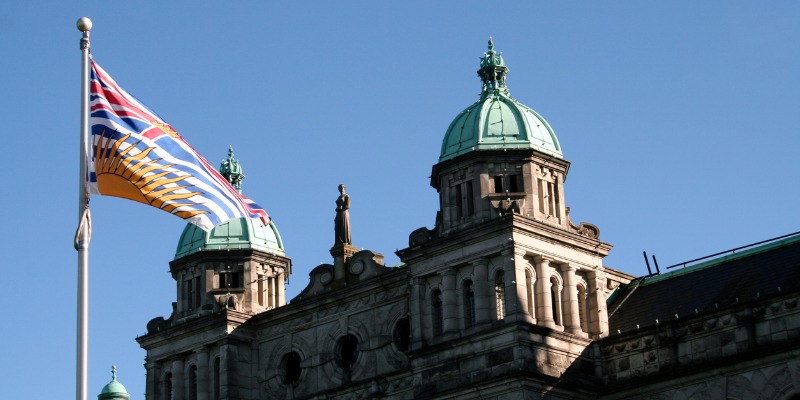B.C. budget lacks effective plan for finances and economy

The Horgan government on Tuesday tabled British Columbia’s provincial budget, which—on the heels of a $8.1 billion operating deficit (2020/21)—projects another $9.7 billion operating deficit in 2021/22 with smaller deficits over the following two years. Spending will remain elevated following its spike at the onset of COVID, and unfortunately the plan lacks detail on a return to balanced budgets as the economy recovers.
According to the government, B.C. Budget 2021 supports the economy through the pandemic and eventual recovery. Program spending (total spending minus interest costs) is projected to increase from pre-pandemic levels (2019/20) by 15.2 per cent to $64.8 billion in 2021/22, with further spending increases over the forecast horizon (2023/34).
Certainly, some additional pandemic-related spending is to be expected but it’s worth noting that program spending also increased by 7.8 per cent in the 2018/19 and 6.3 per cent in 2019/20. In other words, spending was on the rise in B.C. pre-COVID.
Beyond that, there’s an important question about how much spending is justified. Consider, for instance, that the B.C. economy was already expected to fully recover this year in terms of both jobs and economic growth. In fact, employment has already returned to pre-COVID levels (though the reintroduction of some restrictions could now impact jobs).
On the other side of the ledger, revenues are projected to increase slightly from pre-COVID levels by 0.5 per cent since 2019/20 to $58.9 billion in 2021/22. However, this year’s estimate for revenues actually represents a decline of 3.3 per cent from 2020/21 levels.
And of course, when spending is high and outweighs revenue the government collects, we incur deficits, as is projected across the forecast horizon (2023/34).
These deficits don’t capture the full extent of B.C.’s debt accumulation. Indeed, the province separates annual spending (the operating budget) from long-term spending on items such as new schools and highways (the capital budget). All told, net debt (total debt minus financial assets) will more than double from $45.4 billion in 2019/20 to $94.1 billion by 2023/24—approximately $17,701 per British Columbian.
Consequently, more money will be diverted to pay interest on this debt (approximately $3.1 billion in 2023/24), meaning less money is available for things such as education, health care or tax relief.
If we accept the Horgan government’s goal to support long-term economic growth, the attempt seemingly relies strictly on spending. Indeed, the government made no changes on the tax front to encourage sustainable growth in the economy.
Specially, the budget doesn’t include any business tax reductions, which would help to encourage investment critical to economic growth. (Neighbouring Alberta reduced its corporate income tax rate mid-pandemic to 8 per cent in an effort to support businesses.) The B.C. government chose to maintain its current tax rate of 12 per cent.
In fact, the Horgan government has shown its proclivity for tax increases. Since the 2017 election, the government raised the top personal income tax rate on entrepreneurs, businessowners and professionals from 14.7 per cent to 20.5 per cent. The lack of competitiveness with neighbouring states such as Alaska and Washington, which do not have any state-level personal income taxes, limits the ability of the province to attract and retain investment and skilled workers critical also to economic growth.
Simply put, the government does not have a plan to balance the budget anytime soon. British Columbians should brace themselves for more tax hikes in the future, which can hurt economic growth. Though it’s worth noting that Finance Minister Selina Robinson did promise that the government will outline a detailed path back to balance next year.
According to the B.C. government, Budget 2021 prioritizes economic growth and recovery. In reality, the it continues to increase spending and debt with no progress on the tax competitiveness front.
Authors:
Subscribe to the Fraser Institute
Get the latest news from the Fraser Institute on the latest research studies, news and events.

